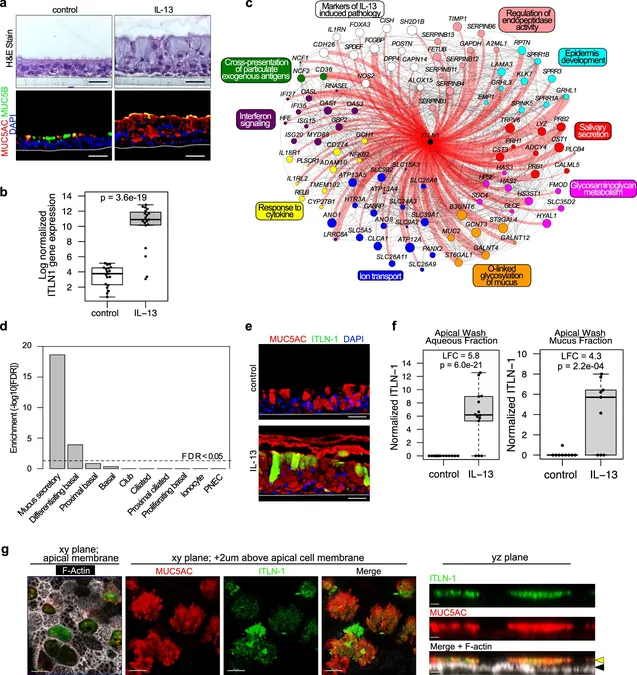
Breakthroughs in Cancer Treatment, Climate Research, and Alternatives to Colonoscopies: What You Need to Know
2024-11-06
Author: Jia
Revolutionary Method to Target Cancer Cells
A groundbreaking study published in Science has introduced a novel technique for killing cancer cells by using a unique combination of proteins that trigger cell death. This innovative approach is a game-changer in oncology, providing a targeted method compared to traditional therapies like chemotherapy and radiation, which often harm healthy cells in the process.
The study, led by Gerald Crabtree and co-senior author Nathaniel Gray, utilizes a molecule known as CDK9 to attach to another protein, BCL6, which usually inhibits the genes responsible for cell death. This clever maneuver flips the cancer cell's survival tactics, prompting a mechanism for apoptosis, or programmed cell death. Gray explains that the strategy targets something cancer cells depend on for survival and converts it into a death signal for the cancer itself.
Currently, this method is being tested in laboratory mice suffering from diffuse large cell B-cell lymphoma. While the initial results are promising for this specific cancer type, the researchers are optimistic about expanding this approach to combat various forms of cancer, potentially thwarting treatment resistance and the rapid progression of the disease.
Understanding Ice Sheets to Combat Climate Change
In another exciting development, researchers have advanced our understanding of the threat posed by melting ice sheets—a significant contributor to global sea-level rise. This is especially pertinent for coastal areas like Greenland, where immense ice reserves are increasingly at risk.
Stanford scientists have created an innovative, cost-effective tool called the Open Radar Code Architecture (ORCA) to study ice sheets more thoroughly. This open-source system employs low-frequency radio waves to effectively penetrate ice layers and capture data about both the ice and the underlying sediment. Unlike traditional systems that require cumbersome parts for specific functions, ORCA offers a flexible solution that researchers can easily adapt for various scenarios.
Co-developer Thomas Teisberg remarked on the system’s potential to streamline data collection and usage among researchers, paving the way for collaborative climate research.
A New Hope for Colorectal Cancer Screening
In healthcare advancements, the FDA recently approved blood tests designed to detect colorectal cancer by identifying cancerous DNA, but their reliability has been a point of contention. New findings from Stanford researchers indicate that while these blood tests can signal potential cancer presence, they are less accurate than traditional colonoscopy procedures, which not only identify but can also remove precancerous polyps.
Given that about 33% of American adults within the recommended age range have never been screened for colorectal cancer, the emergence of blood tests presents a feasible alternative for those hesitant to undergo invasive testing. Uri Ladabaum, a gastroenterology professor involved in the study, emphasizes that these blood tests could serve as a critical first step for individuals who have avoided prior screenings.
As the medical community continues to evaluate these blood tests' impacts and efficacy, experts maintain that colonoscopies should be the preferred method when possible, given their proven effectiveness in early detection and prevention of colorectal cancer.
Conclusion
These promising advances highlight a transformative era in cancer research, climate science, and health diagnostics. As these developments evolve, they hold the potential to save lives, enhance our understanding of environmental challenges, and improve healthcare accessibility. Keep an eye on these fields as they continue to innovate and address critical global issues!




 Brasil (PT)
Brasil (PT)
 Canada (EN)
Canada (EN)
 Chile (ES)
Chile (ES)
 España (ES)
España (ES)
 France (FR)
France (FR)
 Hong Kong (EN)
Hong Kong (EN)
 Italia (IT)
Italia (IT)
 日本 (JA)
日本 (JA)
 Magyarország (HU)
Magyarország (HU)
 Norge (NO)
Norge (NO)
 Polska (PL)
Polska (PL)
 Schweiz (DE)
Schweiz (DE)
 Singapore (EN)
Singapore (EN)
 Sverige (SV)
Sverige (SV)
 Suomi (FI)
Suomi (FI)
 Türkiye (TR)
Türkiye (TR)